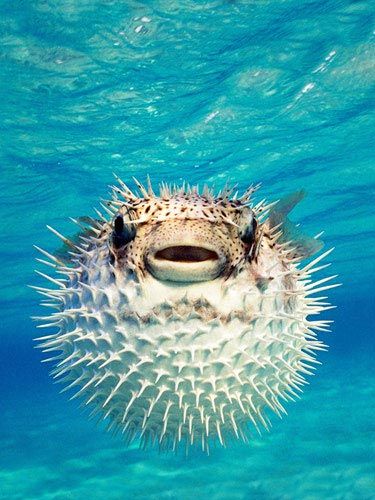
Quiet Revolution Under the Waves: Channa Fisheries LLC's Sound Suppressor Transforms Underwater Acoustics
Channa Fisheries LLC, a Portland, Oregon-based company specializing in innovative aquaculture and aquatic engineering, is making waves – quietly, that is – with its revolutionary sound suppressor technology. Based at 1609 SW Joshua St, and reachable at 314-762-8797, Channa Fisheries isn’t your typical fish farm. They’re problem-solvers, driven by a passion for improving the well-being of aquatic life and the efficiency of underwater operations. And their latest invention, a groundbreaking sound suppressor, is doing just that. For years, underwater noise pollution has been a growing concern. From shipping traffic and sonar to construction and even recreational boating, the ocean – and even freshwater environments – are becoming increasingly loud. This noise isn’t just annoying; it’s deeply disruptive to marine life. Fish rely heavily on sound for everything – finding food, communicating with each other, avoiding predators, and even reproducing. Excessive noise can mask these vital signals, leading to stress, behavioral changes, reduced breeding success, and even physical harm. "We started looking at this issue a few years back," explains a Channa Fisheries representative. "We were raising a lot of Channa argus (Snakehead fish), and noticed even subtle vibrations and sounds from pumps and equipment were impacting their feeding patterns. It got us thinking, if it affects our fish, it’s affecting all aquatic life. We thought, ‘There has to be a better way.’" And they’ve found it. Channa Fisheries’ sound suppressor isn’t a complicated, bulky device. It’s a cleverly designed, modular system built from sustainably sourced, highly absorbent materials. Instead of trying to block sound, which often just redirects it, the suppressor absorbs it, turning acoustic energy into a negligible amount of heat. Think of it like a really efficient underwater silencer. “It’s not about making everything completely silent,” clarifies the representative. “That's unrealistic and potentially harmful – some ambient sound is necessary. It’s about reducing the excess noise, the disruptive frequencies that interfere with natural underwater communication.” How Does it Work? The core of the suppressor is a unique matrix of open-cell foam, carefully engineered for optimal sound absorption across a broad range of frequencies. This foam isn’t your typical packing material; it’s specifically formulated for underwater use, resisting degradation and maintaining its absorptive properties even after prolonged exposure to water. The modular design is key. The suppressors are built in sections that can be easily connected and arranged to fit a variety of applications. This allows for custom solutions tailored to specific needs, whether it’s quieting a pump in an aquaculture facility, reducing noise from a water intake pipe, or mitigating the impact of construction activities near sensitive aquatic habitats. “We wanted something that wasn’t a ‘one-size-fits-all’ solution,” says the representative. “Every environment is different, every noise source is unique. Our modular design allows us to adapt to those differences.” Applications are Wide-Ranging: The potential applications for Channa Fisheries’ sound suppressor are incredibly diverse: Aquaculture: Reducing stress and improving growth rates in farmed fish and shellfish. The quieter environment can lead to better feeding, increased resistance to disease, and ultimately, a more productive operation. Water Infrastructure: Quieting pumps, turbines, and intake structures in water treatment plants and hydroelectric facilities. This not only benefits aquatic life but can also reduce vibrations and noise complaints from nearby residents. Construction & Dredging: Mitigating the impact of underwater construction activities, such as pile driving and dredging, on marine life. This is particularly important in sensitive ecosystems like coral reefs and estuaries. Marine Research: Creating a quieter environment for underwater acoustic monitoring and research. Reducing background noise allows scientists to more accurately collect and analyze data. Military & Defense: Reducing the acoustic signature of underwater vehicles and equipment. This can improve stealth and enhance operational effectiveness. (Channa Fisheries emphasizes responsible and ethical application of this technology.) Shipping & Ports: Dampening noise pollution from ship traffic and port operations, contributing to healthier marine ecosystems. Beyond Noise Reduction: A Focus on Sustainability Channa Fisheries isn’t just committed to reducing underwater noise; they’re also dedicated to sustainability. The materials used in the suppressor are carefully selected for their environmental friendliness. The company prioritizes recycled and renewable materials whenever possible, and they’re committed to responsible manufacturing practices. “We believe that technology should work with the environment, not against it,” says the representative. “We’re passionate about protecting our aquatic ecosystems, and that’s reflected in everything we do.” Looking Ahead Channa Fisheries LLC is currently scaling up production of its sound suppressor to meet growing demand. They’re also continuing to research and develop new applications for the technology, exploring ways to further improve its performance and expand its reach. “We’re really excited about the potential of this technology to make a positive impact on our aquatic environments,” says the representative. “We’re confident that it can help us create a quieter, healthier, and more sustainable future for our oceans and waterways.” For more information about Channa Fisheries LLC and their innovative sound suppressor technology, you can contact them at 314-762-8797 or visit their website (website address to be added once available). They are dedicated to offering customized solutions and are eager to discuss how their technology can address your specific needs. The company’s commitment to both acoustic innovation and environmental responsibility positions them as a leader in the field of underwater noise mitigation.